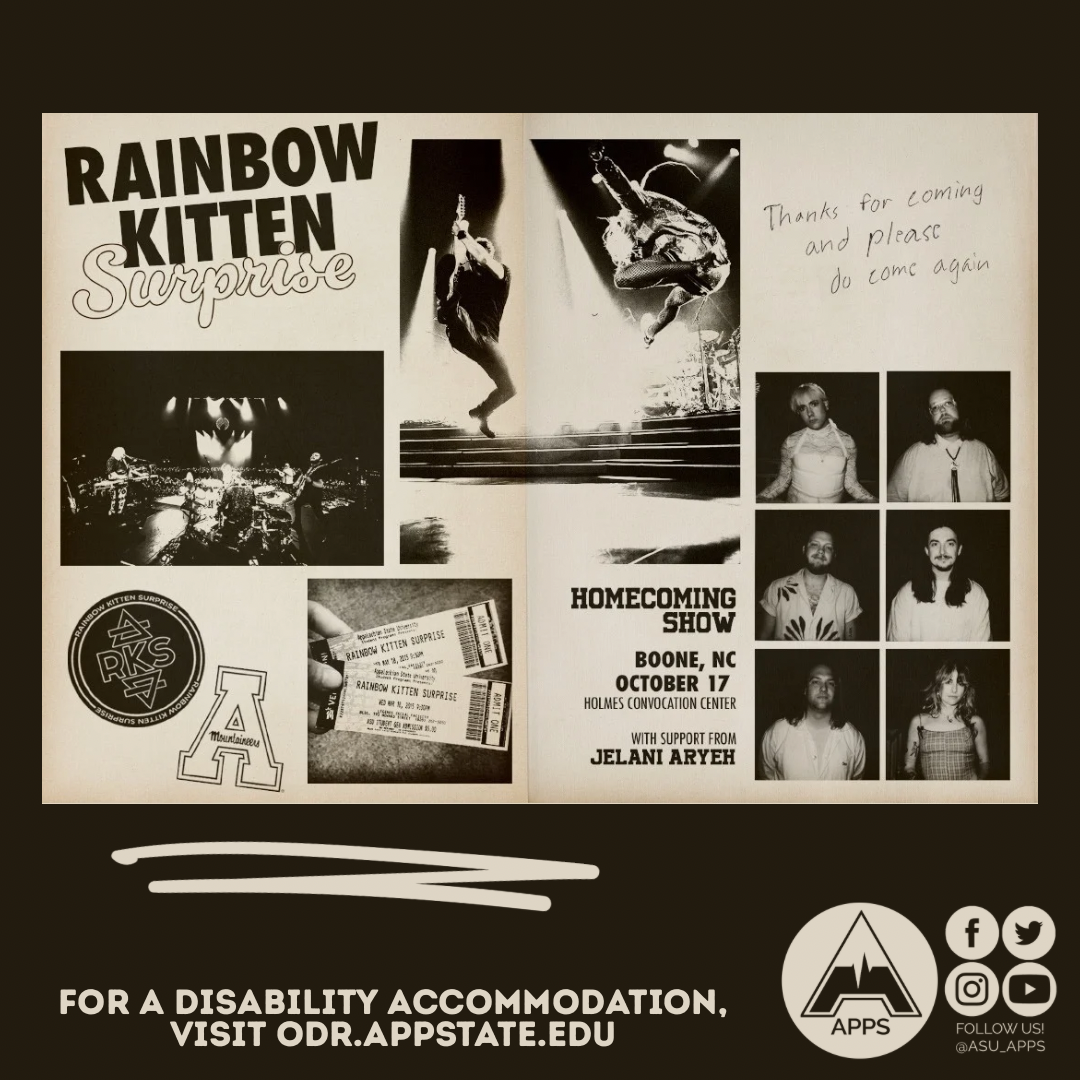The Life of Campus
Appalachian Popular Programming Society (APPS) serves as the primary student programming board at App State and is responsible for planning diverse, quality events for the entire community. APPS aspires to establish transformational experiences and a deep sense of belonging to all Appalachian students through educational and entertaining programs and events.
Appalachian Popular Programming Society (APPS) serves as the primary student programming board at App State and is responsible for planning diverse, quality events for the entire community. APPS aspires to establish transformational experiences and a deep sense of belonging to all Appalachian students through educational and entertaining programs and events.
Upcoming Events
Check out our Instagram for the latest information on upcoming events from APPS. Rainbow Kitten Surprise is returning to Boone, North Carolina for their Homecoming Show on October 17 at the Holmes Convocation Center!Events
Don't miss what's coming next from APPS
APPS Presents
Rainbow Kitten SurpriseTime
Doors open at 7:00 PM. Show starts at 8:00 PM.
Location
Ticket Prices
Collaborate or Co-Sponsor an Event
APPS enjoys collaborating with different organizations and department at App State. Collaborating with APPS is not as difficult as you may think it might be.
